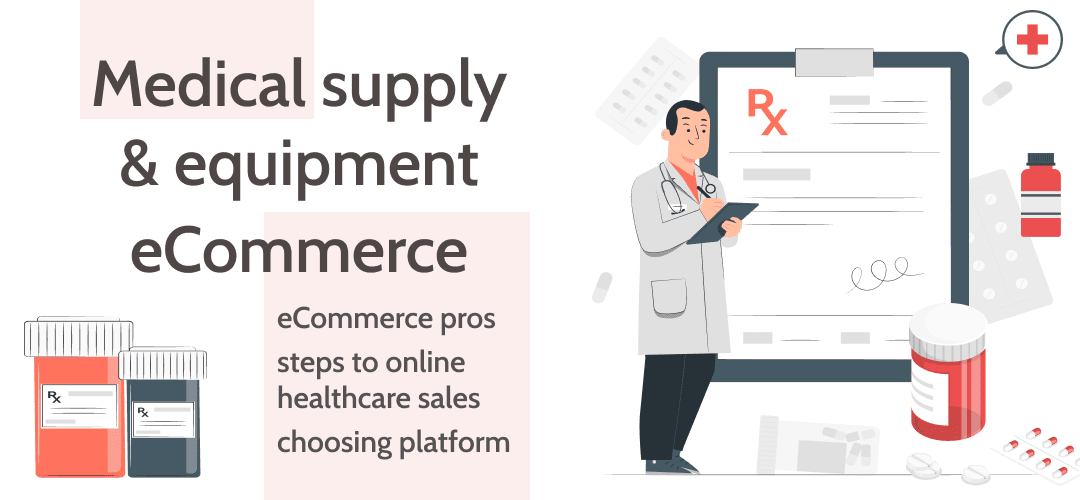
Typically, the buying journey begins with a Google search. 94% of customers who purchase health products start their shopping online. That way, even medical professionals and B2B buyers can learn product specifications and technical data, take a look at case and use studies before placing an order (often wholesale and quite expensive). What's more, they need guarantees on product availability and on-time delivery, which can be given by medical supplies eCommerce.
With healthcare costs rising over the past 70 years and set to continue, building a medical supply store is still a good decision. Regardless of the state of the economy at any given time, there's a stable demand for medical equipment from both hospitals and patients. The COVID-19 pandemic has already demonstrated the great potential of medical and healthcare eCommerce to serve clients and develop businesses. And healthcare keeps digitizing at an incredible rate.
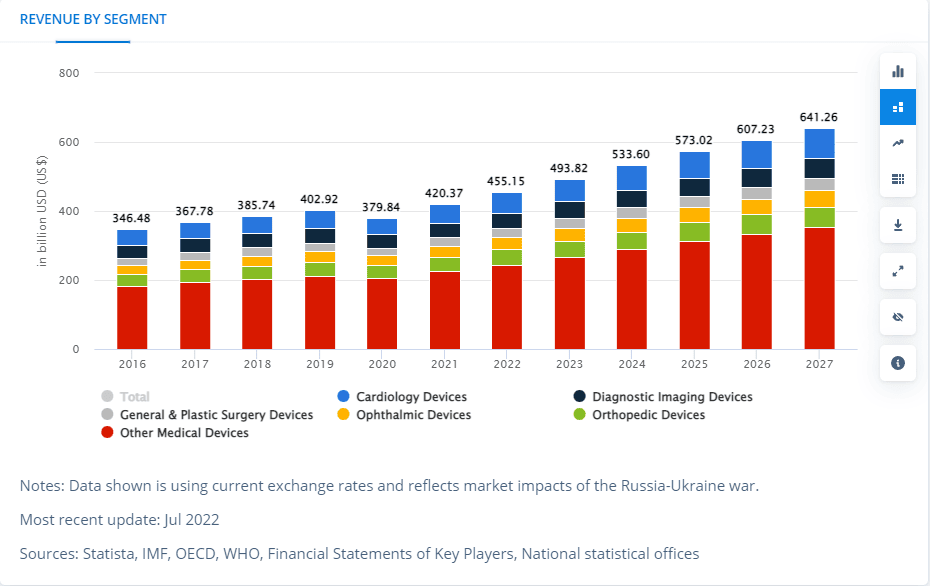
According to Adroit Market Research, global medical healthcare eCommerce is expected to hit over $435 billion by 2025. Initially, hospitals were the main buyers, but today private clinics and individual practitioners also rely on eCommerce to procure their medical supplies. Subsequently, medical devices account for 34% of eCommerce purchases in the healthcare sector, which is a large slice of the market.
Yes, the medical equipment eCommerce is a niche yet a highly lucrative market that has its specifics and benefits. To be successful in it, you as a store owner (and developer working on such a website) will need to follow a few simple rules and keep up with the latest trends. We've gathered this information and presented it in our hands-on guide.
10 benefits of eCommerce for medical supplies you can't ignore
For a start, let's see what benefits you're going to get when digitalizing your physical store or building a full-fledged website from the ground. There are more than one model you can implement – B2C, B2B or B2M (business-to-many). Therefore, eCommerce for medical devices will help to benefit medical supply manufacturers, wholesalers, and distributors alike.
- Omnichannel outreach. Most medical supply distributors are restricted to a certain region, while an online medical supply company has a solid foundation for international and omnichannel growth. An online medical store can grow to new markets and revenue streams by reaching its target audience through phone, social media, marketplaces, and brick-and-mortar stores, ensuring seamless customer experience.
- Greater control and legal compliance. With eCommerce, store owners have complete control over what and where they sell. To stop excessive buying, you can impose reorder limitations on amount and time. You can also utilize data to assist customers in setting inventory limits. Additionally, you can manage product visibility to abide with regional laws, preventing you from ever encountering a gray market.
- Improved customer experience. A self-service website allows customers to handle basic transactions (to study products, place orders, and negotiate discounts), so your sales team can focus on building connections, assisting clients with problems, and generating leads. As a result, each customer also gets custom experience that shows them specific products and prices according to their role or industry, as well as allows simple reordering.
- Automation. With a health eCommerce website that interacts with your ERP, PIM, and other business applications, you can digitize workflows. It's also possible to shorten the sales cycle, establish pricing guidelines and digitize the RFQ and QTC processes. In the end, your company makes data-driven decisions, which improves customer satisfaction and decreases order errors.
- 24/7 selling. Being on time is essential in the healthcare sector because it's difficult to foresee when a hospital will require a supply replenishment. A manager of an online medical store faces far fewer difficulties in meeting this task than a physical store manager would (restricted staff, greater electricity costs, etc.). An online store owner will be able to respond to the needs of hospitals in the quickest time possible because of recent innovations like chatbots and such.
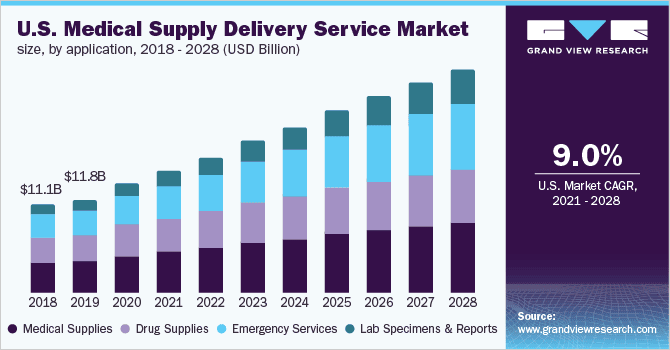
- Lower operation costs. Running an online business is less expensive than renting an office or brick-and-mortar store. No need to hire employees or pay rent or bills. Until the business starts to turn a profit, the proprietor of an online medical supply business may be the only employee.
- More wholesale opportunities. An online store has a wider selection of potential customers who purchase in bulk. Large B2B purchases are the core sales of medical supply stores. Wholesale sales decrease transaction costs, especially those associated with sales communication, and makes product information more accessible.
- Better visibility with digital marketing. SEO, social media and email marketing, and PR strategies are components of web advertising which are less expensive than and don't depend on a third-party service provider.
What are the challenges of an eCommerce medical equipment store?
What to consider when creating an online store for medical devices? There are a number of features that a medicine eCommerce business can adopt depending on its budget, but there are still some must-have functions that cannot be skipped. Keeping the balance between what's needed and what's preferred is the much sought-after middle ground. And the bigger your website is, the more difficult it is to make wise time and money investments.
Like other B2B wholesale websites, large medical web shops face similar challenges. As a required minimum, they need a convenient system for bulk orders to be placed, tracked and fulfilled. In general, there are three main challenges, or three Cs:
Complexity: Medical equipment does not belong to simple goods. The quantity of parts and how they are connected affect the complexity of medical devices. This does not, however, imply that finding the right requirements when shopping online should be difficult.
Compliance: Buyers want the components or goods they buy to comply with industry-specific regulations. This means that the digitization of the entire purchasing process needs to follow local laws.
Compatibility: Сustomers also need to know that the new products are compatible with their existing equipment before purchasing replacement or extra parts for medical equipment.
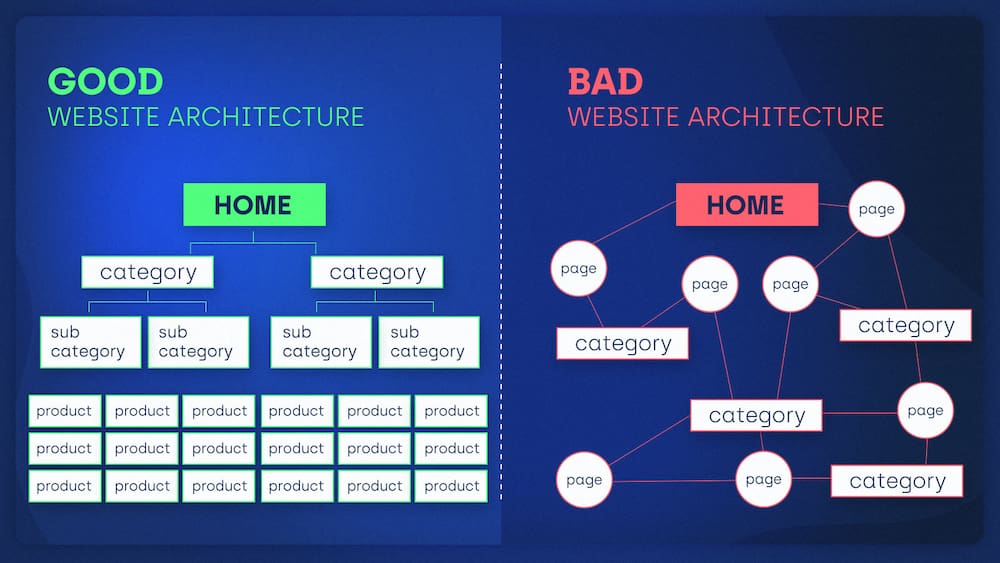
Advanced data filtering
Agile search is crucial to help clients navigate through an enterprise-level online store if it sells hundreds of SKUs. That's why filters are a must, including those for device type, price range, top ticks by reviews, and other distinctive features in the database, etc.
Custom reports
Healthcare organizations often need detailed reports and technical documentation in order to choose a particular product and extra parts for its maintenance. The better and easier they can get such reports, the better for the distributor (i.e. an eCommerce website owner).
Prescription scanning
When it comes to processing prescriptions, the FDA and other regulators have very strict restrictions. Implement a sophisticated prescription screening procedure to ensure that your system won't be abused.
Keep in mind, though, that not all eCommerce platforms are suitable for selling medical supplies online. For example, Shopify has a list of prohibited products, including pharmaceuticals and other items that have health or therapeutic benefits. And the same goes to any other SaaS solution that can take a one-sided decision, and tell you what you can and what you can't sell in your own online store. With a self-hosted eCommerce solution, however, it's never the case. It's you who decides on the design and content of your online store. Create a website of any complexity with nopCommerce, an open-source eCommerce platform powered by Microsoft technologies.
Actionable tips on choosing a medical supply eCommerce platform
Since the healthcare industry is complex and multi-tiered, you need an eCommerce platform for medical supply companies that recognizes its diverse structure and is ready to fulfill its business needs. Business entities that sell medical equipment online require an integrated strategy that will allow them to base their procurement decisions on real-time sales data and cut out the manual labor for managing several warehouses.
In terms of major features, an ideal platform for medicine eCommerce can't do without:Vendor-related section
- Creates a comprehensive vendor database
- Provides a means for online vendor communication
- Enables the placement and monitoring of procurement orders
- Simplifies the process of reordering
- Gives users access to the whole history of transactions for each vendor.
Stock management
- Combines current stock data from numerous warehouses
- Provides low stock warnings to avoid out-of-stocks
- Increases labor productivity by eliminating manual inventory control tasks.
Order placement
- Automatically routes orders to the best warehouse depending on stock levels and geography
- Creates workflows for completing orders with varying order values, quantities, and other factors
- Sends automated emails to notify customers of order shipment and status updates.
Data analytics approach
- Enables sales forecasting for various regions, categories of medical supplies and equipment, as well as customers
- Prevents stale inventory, which maximizes the usage of storage space
- Increases client loyalty by avoiding product shortages.
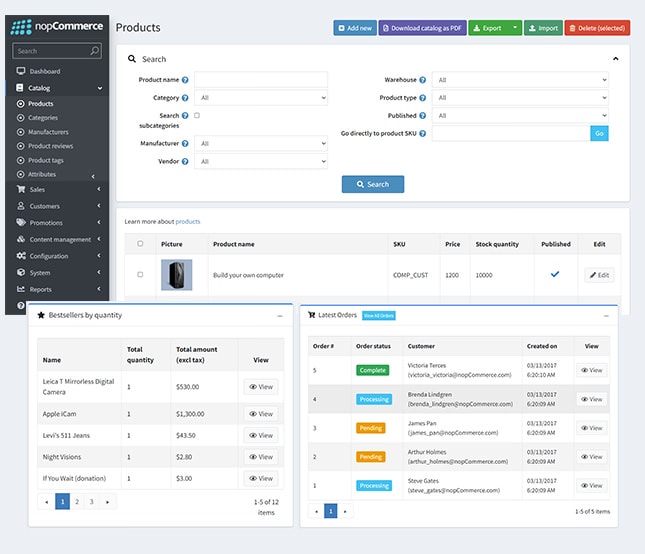
To sum up, choose a platform that will allow you to achieve future goals while also being flexible enough to work now. The more adaptable your platform is, the less frequently you'll need to migrate your website to a more powerful one (which is a pain in the neck itself and a real obstacle to business growth).
Take into account how your eCommerce website will work with current third-party solutions. Manually entering orders into the ERP is inefficient, therefore look at APIs that can facilitate integration. In addition, look for the features that let users set their own account permissions.
Last but not least, make sure the platform you choose features responsive front- and back-end design. Both customers and web administrators seek a flawless mobile experience.
Why nopCommerce is a robust solution for the healthcare industry
nopCommerce is an open-source eCommerce platform that offers unlimited customization, sufficient flexibility and scalability, and high security for middle- and large-sized businesses in pharma eCommerce (it doesn't mean that the platform cannot be used by SMBs, but its functionality really thrives in enterprise-level projects and compensate for the initial development costs).
In nopCommerce, powerful B2B features, multi-store and multi-vendor options come out-of-the-box. The platform is ready to scale globally because it supports multiple languages and currencies. Thanks to the Web API plugin, it can also adopt a headless approach, which allows to create a network of unique-looking websites with the same technology and management system at their core.
Don't take our words for granted. The high efficiency of nopCommerce in the healthcare market is proved by numerous case studies of our Solution partners. For example, Scootaround (the US leading personal transportation solutions company offering rental, sales, and repair services for wheelchairs, powerchairs, and rollators) was integrated with an ERP system to save over $400,000 per year. The other changes increased revenue by 80% and decreased customer cancellations by 35%.
Another example of a successful medical website is Acu-Market, one of the largest suppliers of acupuncture, herbal, homeopathic, and supplements in the United States. After the website migration to nopCommerce, the number of customers increased by 20% and the number of orders grew by 30%. What's more, the website got a custom doctor module for online consultations.
Medical eCommerce website examples
Below, we've gathered a few niche medical websites for you to check their features, design and navigation system to implement into your own website. By the way, all of them are powered by nopCommerce, based on both out-of-the-box features and custom solutions.
Complete Care
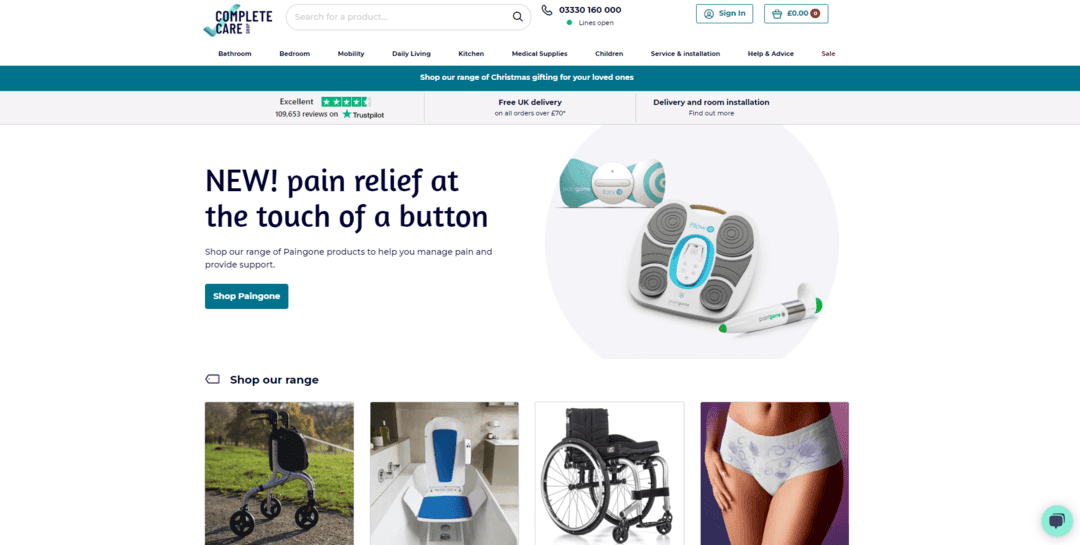
The Complete Care website has been functioning since 2007 and now offers 5,000+ products, including daily living aids and mobility equipment. It has a straightforward design, easy-to-navigate catalog and a range of additional services (home living consultation, wheelchair assessment, etc.).
LabFriend
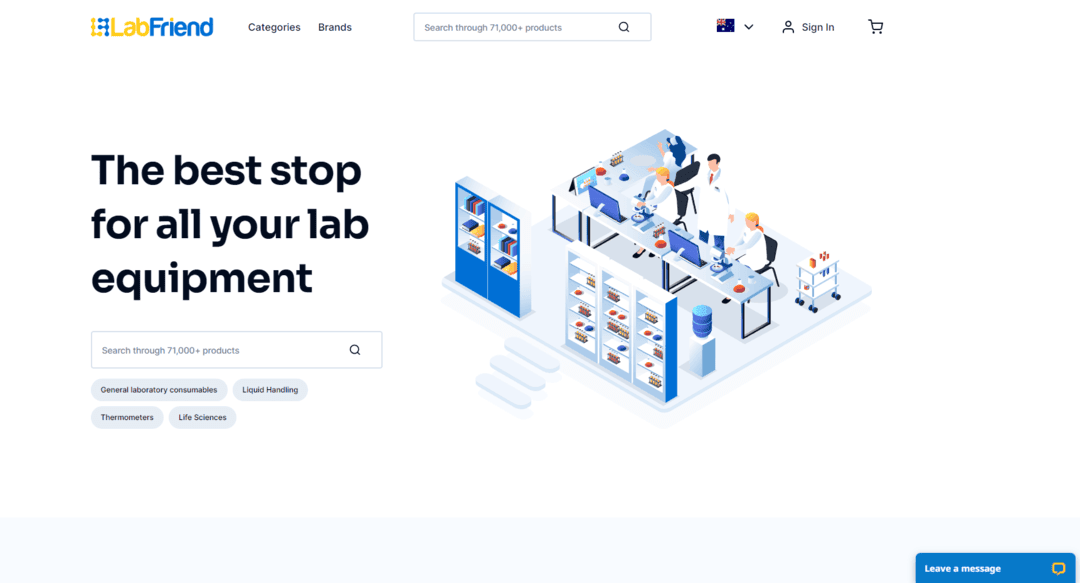
LabFriend is an online laboratory equipment and consumable supplier offering new scientific instruments, lab equipment and general lab consumables. Having 70,000+ B2B medical supplies and 8 distribution centers worldwide, the company offers a convenient search through categories by brands and spheres of application.
Torga Optical

Combining both physical and online shops, Torga Optical differentiates products, currencies and discounts across 5 main locations. As it aims mostly at B2C buyers, it also offers helpful content on fashion trends, as well as free eye-checks and visual screenings in brick-and-mortar stores. It's a great example of a hybrid medical supply business.
Urology Professionals
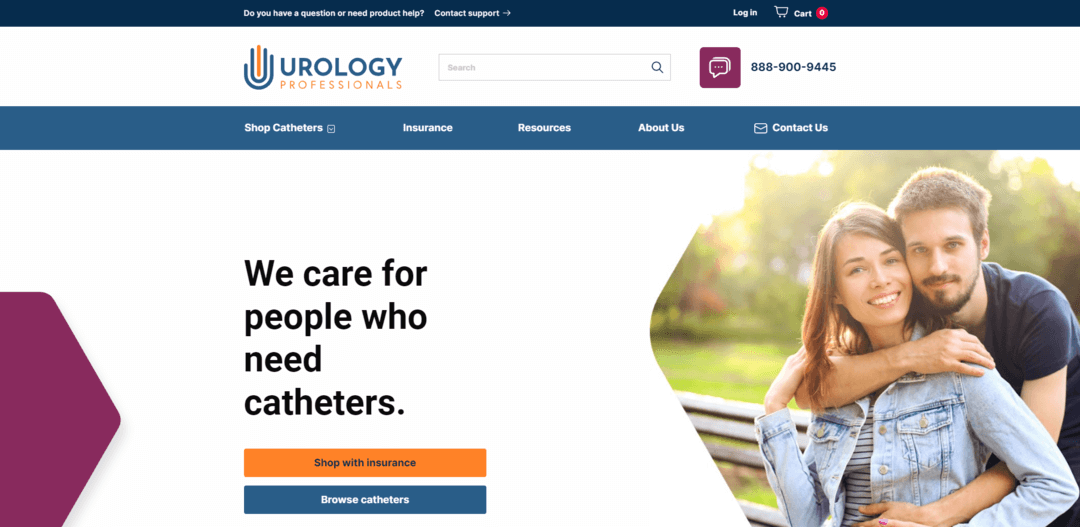
Urology professionals is a niche website supplying not only urology products but also caring patient solutions. It has separate sections for each sphere – online shopping, insurance, and mentoring – which facilitates navigation for both wholesale and retail buyers.
OPC Health
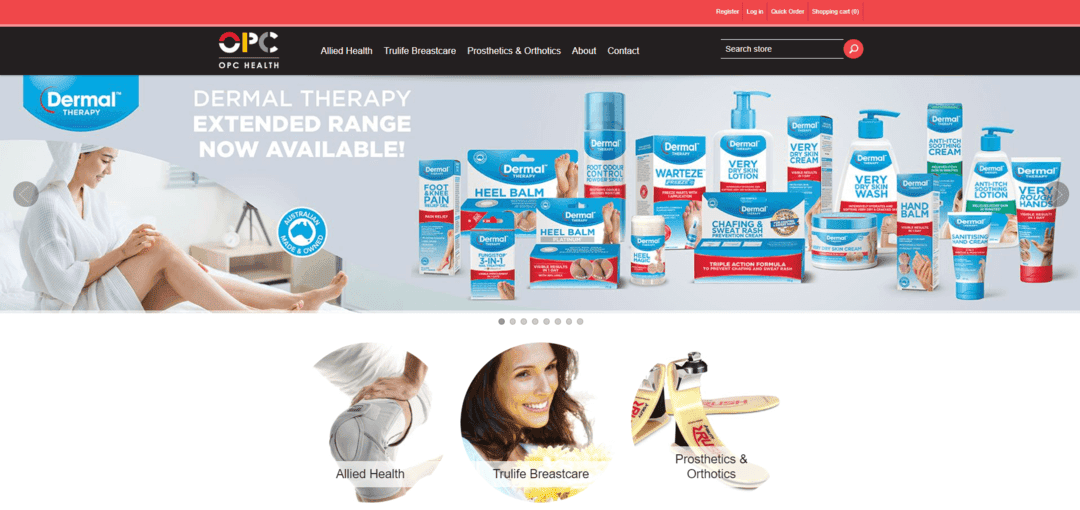
OPC Health is an accredited company that has been servicing the health industry since 1981. Its website provides prosthetic, orthotic, physiotherapy, occupational therapy and podiatry products, electric physiotherapy and chiropractic couches, and electrotherapy and diagnostic ultrasound equipment. Detailed categorization, smart "related products" feature and high-quality images give a good idea about each product on the sale.
Final word
The COVID pandemic caused major economic disruptions and changed many businesses forever, but medical device eCommerce can turn matters in its favor.
Medical equipment has changed and improved thanks to technology. The same technology improves the way medical devices are sold today. Indeed, those who adopt eCommerce will receive a larger share of the market, with a CAGR of 13.5% expected through 2026.
Even though there are enough challenges to overcome, such as getting licenses and working with multiple suppliers, creating an online store for medical equipment can be a sound investment in any economic climate and is likely to stay profitable in the long run.